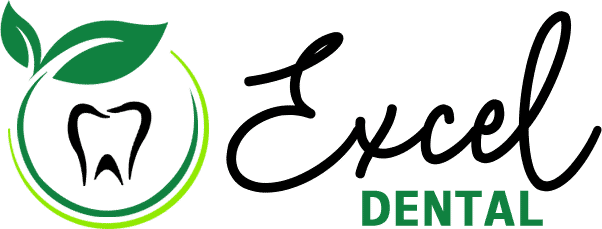Oral health and nutrition are interconnected aspects crucial for overall well-being. A balanced diet rich in vitamins, minerals, and nutrients supports solid teeth and gums, preventing dental issues like cavities and gum disease. Conversely, poor nutrition can compromise oral health, contributing to tooth decay and other problems. Regular dental hygiene practices, including proper brushing, flossing, dental check-ups, and a nutritious diet, foster optimal oral health.
Recognizing the symbiotic relationship between oral health and nutrition is essential for maintaining a healthy smile and promoting general health and vitality.
Foods that Promote Oral Health
1. Dairy Products: Rich in calcium and phosphorus, dairy products like milk, cheese, and yogurt help strengthen teeth and promote enamel health.
2. Crunchy Fruits and Vegetables: Apples, carrots, and celery stimulate saliva production, which helps neutralize acids and clean the teeth. Their fibrous texture also aids in removing plaque.
3. Leafy Greens: High in vitamins and minerals, leafy greens like kale and spinach promote gum health and improve oral well-being.
4. Lean Proteins: Foods like poultry, fish, and eggs are rich in phosphorus, promoting the mineralization of teeth and supporting their strength.
5. Nuts and Seeds: These are sources of essential minerals, including calcium and phosphorus, that contribute to tooth health. Chewing nuts can also stimulate saliva flow.
6. Water: Staying hydrated is crucial for maintaining saliva production, which helps cleanse the mouth and neutralize acids that can lead to tooth decay.
7. Green Tea contains antioxidants that may help reduce bacteria and inflammation in the mouth, improving oral health.
8. Sugar-Free Gum: Chewing gum without sugar can stimulate saliva production, helping to wash away food particles and neutralize acids.
Remember, while these foods support good optimal oral health, maintaining proper oral hygiene practices, such as regular brushing, flossing, and dental check-ups, is essential for comprehensive dental care.
Foods to Avoid for Healthy Teeth
To maintain healthy teeth and prevent dental issues, it’s advisable to limit or avoid certain foods and beverages that can contribute to tooth decay, erosion, and other oral problems. Foods to be cautious about include:
1. Sugary Foods and Sweets: Candies, chocolates, sugary snacks, and desserts can lead to the growth of harmful bacteria in the mouth, contributing to cavities and tooth decay.
2. Carbonated Drinks: Regular and diet sodas, as well as other acidic beverages, can erode tooth enamel over time, increasing the risk of cavities and sensitivity.
3. Citrus Fruits: While high in vitamin C, frequent consumption of acidic fruits like oranges and lemons can contribute to enamel erosion. Moderation is key.
4. Sticky and Chewy Foods: Caramel, taffy, and other sticky snacks can cling to the teeth, promoting the growth of bacteria and increasing the risk of cavities.
5. Starchy Foods: Foods high in refined carbohydrates, such as chips and crackers, can break down into sugars in the mouth, fueling bacterial growth and leading to tooth decay.
6. Alcohol: Excessive alcohol consumption can contribute to a dry mouth, reducing saliva production, which is essential for neutralizing acids and maintaining a healthy oral environment.
7. Sports and Energy Drinks: These beverages often contain high levels of sugar and acidity, posing a risk to tooth enamel. Water is a better choice for hydration.
8. Coffee and Tea: While these popular beverages offer health benefits, excessive consumption can stain teeth. Adding sugar or acidic flavorings can also contribute to oral health issues.
9. Hard Candies and Ice: Chewing on complex substances like ice or candies can lead to chipped or cracked teeth. Ice can also cause tooth sensitivity.
10. Dried Fruits: While a convenient snack, dried fruits can be sticky and high in natural sugars, adhering to teeth and contributing to cavities.
How do you incorporate healthy habits into your diet?
1. Gradual Changes: Start with small, manageable changes to avoid feeling overwhelmed. Replace one unhealthy snack with a healthier option or add a serving of vegetables to your meals.
2. Balanced Diet: Ensure your meals include a variety of food groups, such as fruits, vegetables, lean proteins, whole grains, and dairy or dairy alternatives. This provides essential nutrients for overall health.
3. Meal Planning: Plan your meals and snacks. This helps you make healthier choices, reduces the likelihood of impulse eating, and saves time and money.
4. Cook at Home: Prepare meals at home whenever possible. This gives you better control over the ingredients and cooking methods, making it easier to choose healthier options.
Remember, adopting healthier habits is a gradual process. Focus on making sustainable changes that align with your lifestyle, preferences, and health goals.
Final Words!
In conclusion, embracing a diet rich in nutritious foods and cultivating mindful eating habits significantly contributes to optimal oral health. The key steps are steering clear of sugary snacks, incorporating colorful, balanced meals, and maintaining proper hydration.
Regular dental check-ups and healthy habits form the foundation for a radiant smile. For comprehensive dental care, trust Missouri City Dentist – Excel Dental. Elevate your oral well-being and embrace the transformative power of a nutritious lifestyle.
Schedule your appointment today and let your radiant smile shine – because a healthier you begins with a healthier mouth!


